Seeking Justice & Defending Human Rights (Part 3 by Gospel for Asia)
Wills Point, Texas – GFA Special Report (Gospel for Asia) – Discussing the large and small scale efforts and solutions to end inequality, social injustice, grinding poverty, human rights violations, that continues to exist, affecting millions of women, men and even children.
Small Steps, Big Change
In the face of such enormous inequalities, it can be difficult to know how to respond and where to start. But just as the problem of social injustice is not really a single, abstract issue so much as the many individuals it affects, so ending inequality is about changing personal circumstances as well as addressing the structures that allow inequality to continue.
That sort of action is taking place on large and small scales. At one end of the spectrum, the World Bank is supporting a $63 million empowerment project in Jharkhand, India, which aims to help adolescent girls and young women complete secondary-level education and acquire job skills.
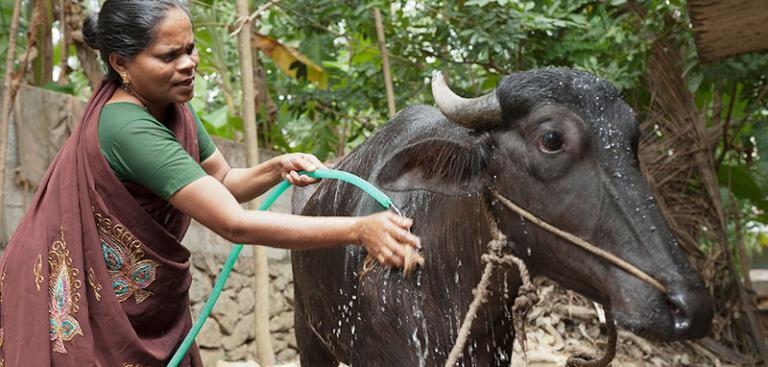 |
| A microfinance loan enabled this woman to buy a water buffalo and keep her family out of the cycle of grinding poverty. She washes the buffalo every day to ensure it does not get sick. |
Another way of improving the situation for poor families has been providing microloans that keep them away from predatory loan sharks. Many families have found themselves caught in bonded labor for generations after borrowing a small sum, only for their debt to keep spiraling beyond their reach.
The "Jeevika" program launched a decade ago in Bihar, India, by the state and national Indian government has seen some 600,000 women helped to start small businesses as farmers, dairy and poultry producers and entrepreneurs in small businesses.
"These women are also emerging as a political and social force," notes India Spend.
The 2016 Global Gender Gap Report by the World Economic Forum concludes that at its current rate of progress, it will take South Asia an entire millennium to reach gender equality in the workplace.
Increasingly aware of living in a globalized economy, where production is outsourced to where labor may be cheapest, some in the West are recognizing how their spending may affect the poor in other parts of the world.
"Ending inequality is about changing personal circumstances as well as addressing the structures that allow inequality to continue."
Yet while encouraging Western consumers to challenge companies about their supply chain practices, to ensure they are not supporting sweatshop businesses, groups like ASI don't advocate boycotts.
Such actions "can actually make the situation worse and undermine the economy of an already poor country," says the organization. "As well as hurting employers using slavery-like practices, they could also hurt those who are not exploiting their workers, and worsen the [grinding poverty] that is one of the root causes of slavery."
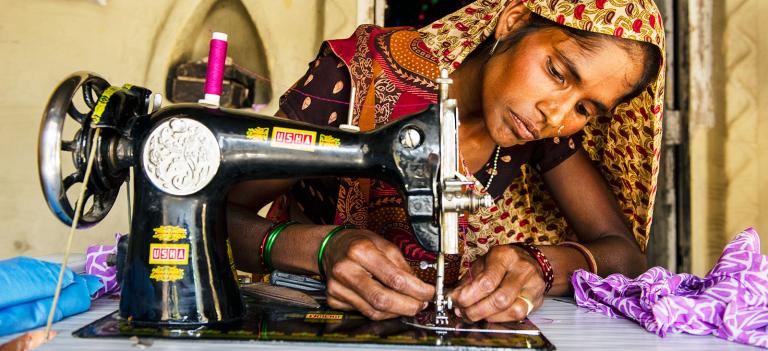 |
| Sewing machine provides a widow with dignity and a way to earn an income despite the loss of a spouse. |
Gospel for Asia Fights Grinding Poverty in Asia on a Local Level
Complex though the issues are, simple actions can make a difference. Through a wide range of services and programs, Gospel for Asia (GFA) is working among Asia's poor to offer help and hope for a better tomorrow. And GFA can testify that even a small gift for a family can create big change.
Vocational training courses that cost just $30 can teach skills like fishing, welding and tailoring to equip men for better-paying work. For $75, GFA provides tool kits that may include items like axes, shovels, saws and plows, which enable farmers to increase their productivity.
An $85 donation supplies a sewing machine that allows men and women to start a home-based business, rather than being dependent on others. Not only does this mean they can work from home and take better care of their children, it also multiplies their income significantly. Many who have received a machine say they no longer feel they need to keep their children from school to help make money.
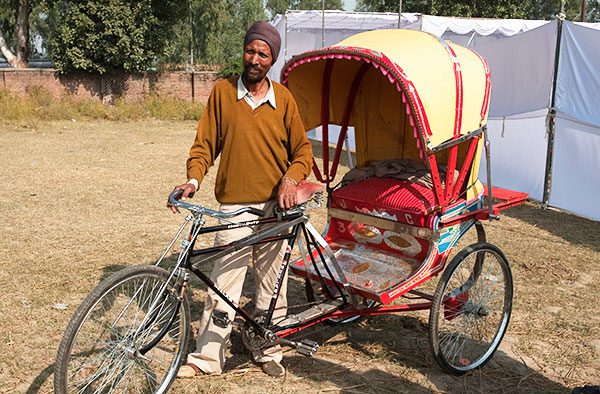 |
| The gift of a bicycle rickshaw can change the financial situation of an entire family, and life them out of grinding poverty in Asia. |
Costing $200, a rickshaw opens up a whole new level of opportunity for a family. Instead of having to rent a vehicle at often high rates, rickshaw drivers can keep all their earnings from ferrying passengers and products around.
Gospel for Asia also helps to ensure that a family's situation improves beyond one generation, by encouraging parents to keep their children free from the burden of work. Indeed, GFA sees education as important as equipment, if not more so, in bringing about long-term change.
Currently, around 75,000 children are enrolled in GFA-supported Bridge of Hope centers, where they are helped with their schooling and holistic development. Since 2004, many others have come through this program, which also provides food and medical checkups.
The importance of greater access to education, especially for women and girls, cannot be emphasized enough. Funding such efforts "isn't charity but investment, and the returns are transformational," notes activist and singer Bono in a recent opinion piece for TIME magazine in which he asserts that "poverty is sexist."
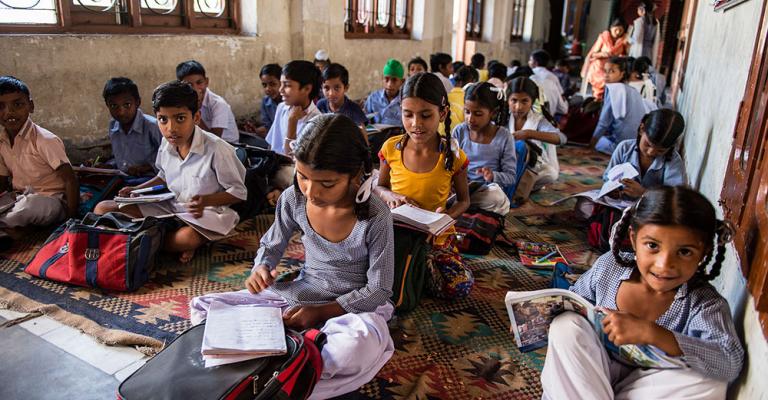 |
| GFA's Bridge of Hope program helps about long-term change in families and gives the next generation a chance for a better future—one where they can rise above the cycle of grinding poverty. |
When girls get an extra year's schooling, their wages increase by almost 12 percent, he writes. Closing the gender gap in education could generate up to $152 billion a year for developing countries.
"When you invest in girls and women," he goes on, "they rise and they lift their families, their communities, their economies and countries along with them."
One example of that is recounted in Global Fund for Women's (GFW) Breaking Through report on gender equality in Asia and the Pacific. After joining a women's self-help group, a 29-year-old became the first housewife elected to the panchayat, or local government, also helping win equal pay for equal work for women at a local factory.
New opportunities have opened up for the more than 100,000 women who have completed one of GFA's literacy courses. Another 30,000 women are currently taking part in the program, which is offered in 16 languages.
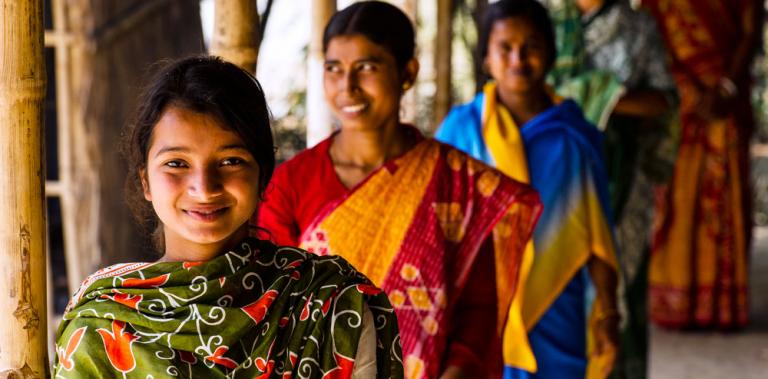 |
| "When you invest in girls and women, they rise from grinding poverty and they lift their families, their communities, their economies and countries along with them." |
One graduate of the GFA-supported literacy program told how learning to read at the age of 40 had changed her life. "I have been deceived many times because of my illiteracy," says Baasima.
"When I used to go for shopping, bad shopkeepers deceived me, taking more money and not returning the balance amount. But now I can calculate myself. They cannot deceive me. I am very happy now."
Learning to read has not only enabled Baasima and others to provide and care for their families better-the health of your child is endangered when you can't read a prescription they may need-but it has also raised their standing in their communities. And along with that improved status can come a new sense of personal worth and identity as they discover God's love for them in the pages of the Bible.
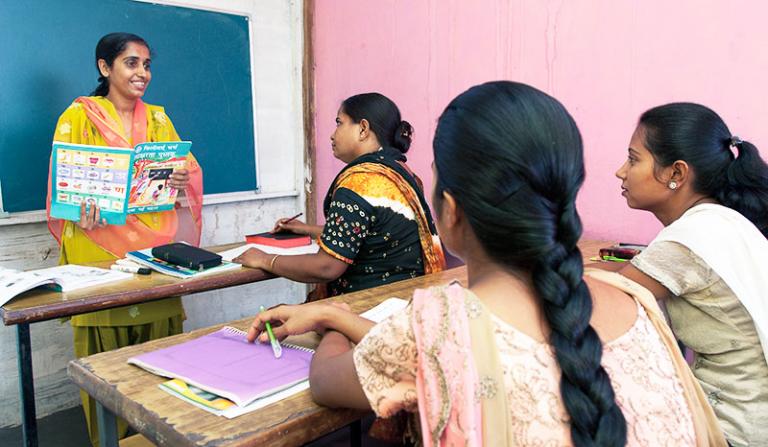 |
| Literacy training enables women to care better for their families and increases their sense of self-worth. |
Indeed, all of GFA's efforts to address the inequalities that press down on millions across Asia are anchored in the belief that true social justice means not only seeking better opportunities for all economically and educationally, but also spiritually-the chance to hear of a God who loves all equally, and to see that love demonstrated through actions that help lift them up.
While GFA celebrates the attention that the annual World Day of Social Justice brings to the plight of the overlooked and down-trodden and the enormity of the challenge, it quietly works year-round to change things one person at a time, echoing the approach of Mother Teresa, who remarked of her years caring for some of India's poor that, "There are no great acts, only small acts done with great love."
GFA-supported workers seek to walk out the call of the prophet Isaiah (1:17, NIV):
Learn to do right; seek justice.Defend the oppressed.Take up the cause of the fatherless;plead the case of the widow."
This article originally appeared on gfa.org
To read more on Patheos on the global problem of grinding poverty, go here.
Click here, to read more blogs on Patheos from Gospel for Asia.
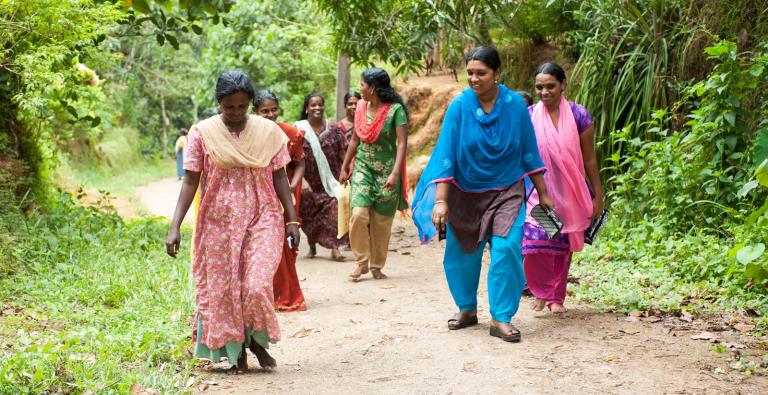
Comments
Post a Comment